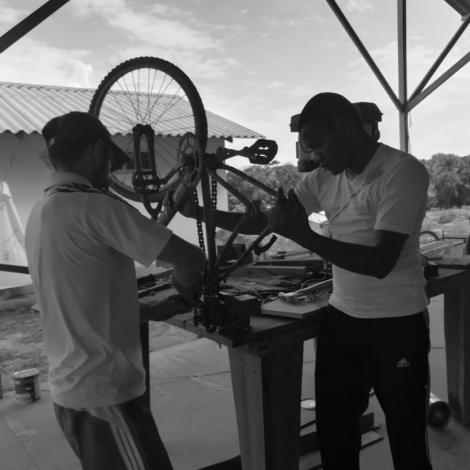Armed conflicts claim tens of thousands of lives each year and displace millions of people internally and as foreign refugees. War is a global crisis affecting every region on the planet. In the face of this, the role of engineering and technological development in the military industry and its consequences cannot be overlooked. By the same token, engineers can play a fundamental role in ending the violence.
These experimental spaces could be proposed as prototyping laboratories for peacebuilding, a neutral space that would complement the processes of reconciliation.
There are about 74 armed conflicts around the world now, according to the Department of Conflict and Peace Research at Uppsala University in Sweden. Those include conflicts between states, civil wars and citizen protests repressed by governments. Within this framework, engineers can take a step toward peace by proposing the creation of spaces for peacebuilding. These can be areas set aside for collaborative design, located between the populations affected by each conflict, and mediated by engineers. This is more than just an interesting idea, I would argue that it is the responsibility of academia and engineering professionals around the world to implement such a thing in their work towards social justice.
Engineering academics and professionals should take on the role of mediators. We should work to provide the best environments for the development of skills, to improve the capacities of communities as they address the impact of the conflicts in which they are involved. These experimental spaces could be proposed as prototyping laboratories for peacebuilding, a neutral space that would complement the processes of reconciliation. One of these spaces was built during the International Development Design Summit – Peacebuilding from Co-Creation, near San José del Guaviare, Colombia, in a region that has fallen victim of the nation’s armed conflict. In this country, 52 years of war ended in 2016 with a peace agreement between the government and the FARC-EP. The conflict left 220,000 dead (177,000 civilians and 41,000 combatants) and around 5 million people internally displaced.
The design meeting was held in January 2018 as a collaboration between the National University of Colombia, the International Development Innovation Network and the Design for Development Laboratory at the Massachusetts Institute of Technology (MIT D-Lab). The 15-day summit brought together 60 people, including victims of the armed conflict, FARC returnees, design and engineering students, professionals and civil servants, among others, to co-create prototypes of affordable, appropriate and contextual place-based solutions to meet the challenges and aspirations of the region’s communities.
Through a methodology that D-Lab developed, the meeting focused on strengthening creative capacity. In this, participants experience a design cycle based on co-creation and draw on their diversity of knowledge and life histories. The experience ranges from “design for” to “design with” and ends in “design by” the people concerned. The final objective is to promote collective autonomy and technological sovereignty.The processes of reconciliation and peacebuilding launch from a spirit of “doing together,” and an initiative of local innovation through engineering.
As for the results, the meeting led to the creation of a community of 60 people committed to peacebuilding through design and engineering, framed in collaborative design methodologies to generate low-cost, appropriate and contextual solutions. From another point of view, 9 prototypes were developed in the areas of biofertilizers, animal feed and production, agricultural products and tools, children and young people’s education, water filtration and tourism. Finally, as a result of this summit, the governor of the department and a former guerrilla commander reached an agreement in which they will both support a local innovation center in the region, as a joint development initiative after so many years of conflict. In this regard, engineering therefore has a new opportunity to support peacebuilding and reconciliation processes in the regions where conflicts are taking place.
About the Author
Juan David is a PhD candidate at the National University of Colombia studying engineering and organizations. He is a research affiliate at MIT D-Lab. His research foci are Humanitarian Engineering, Innovation Ecosystems, Local Innovation, Collaboration and Peacebuilding.

